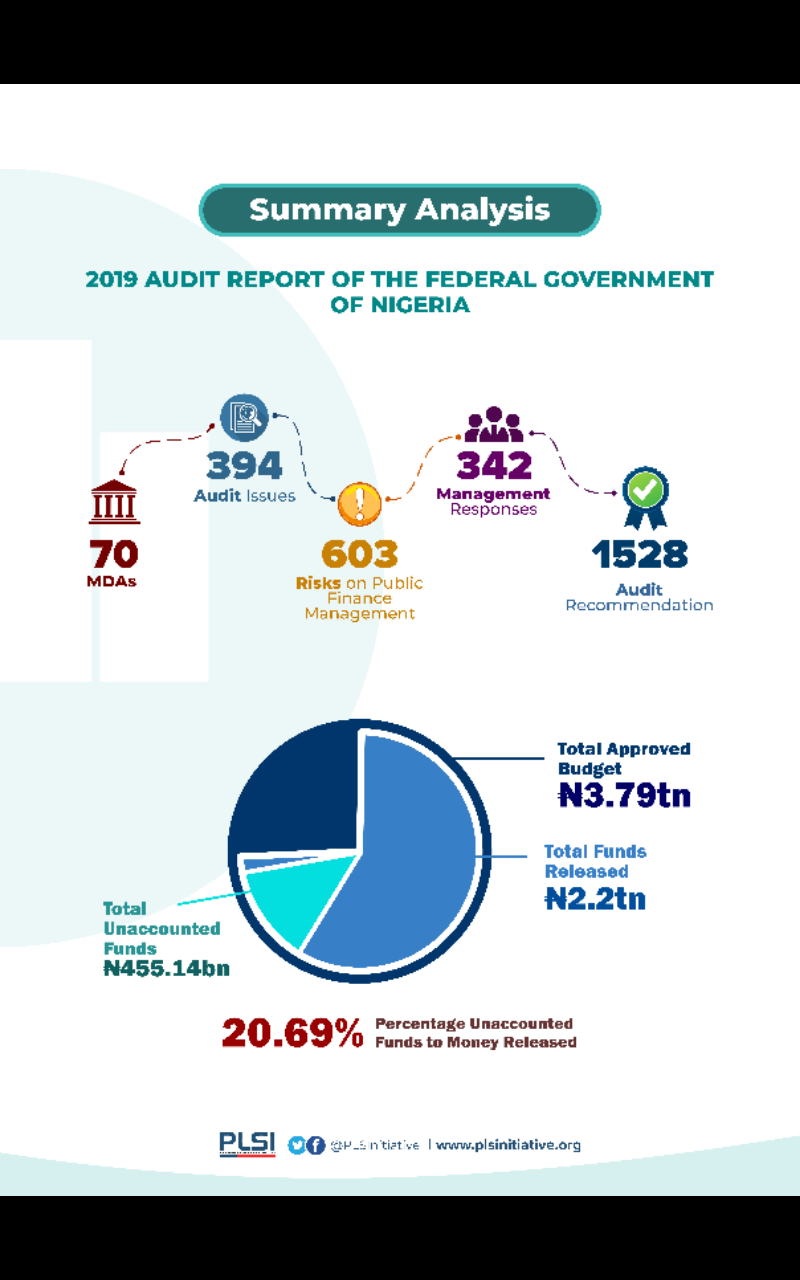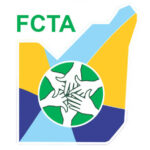By Felix Khanoba
A civic-tech organisation fostering public accountability in Nigeria, Paradigm Leadership Support Initiative (PLSI), has unveiled its detailed analysis of the 2019 Report of the Auditor General on the account of the Federal Government.
PLSI, which highlighted 70 Ministries, Departments and Agencies (MDAs) of the Federal Government indicted for several fiscal abuses in the Auditor-General’s report for 2019, decried the absence of a comprehensive audit law that will prevent corruption and block loopholes through which public funds are being frittered away.
The organisation said from its thorough findings, “a total of 394 audit issues, 603 risks on public finance management, 342 management responses and 1,528 audit recommendations were drawn from the 2019 Audit Report.
“While approved budgets for all 70 agencies analyzed was N3.79tn, funds released to the MDAs in 2019 stood at N2.2tn. However, the sum of N455.14bn (20.69% of funds released in 2019) was not unaccounted for by these agencies”.
While saying the Federal Government boasts of about a thousand MDAs, PLSI said the 2019 Audit Report could only captured a handful of them, adding that a full coverage of all the government’s bodies by audit report would reveal a mind-boggling amount of money being lost through corruption and ineffective expenditure management in the nation’s public sector.
Government institutions covered in the PLSI’s analysis include Federal Medical Centre, Keffi which was unable to account for N17.7bn, Federal Ministry of Agriculture and Rural Development with N60.6bn not accounted for, Federal Ministry of Works and Housing – N1.2bn.
Others are Anambra-Imo River Basin Development Authority Owerri with N5.85bn, Bank of Agriculture with N350m, Code of Conduct Tribunal with N516.5m, Council for Legal Education (Nigeria Law School) with N4.4bn, Department of Petroleum Resources (DPR) with N275.6m, Federal Capital Territory Administration (FCTA) with N5.1bn and 61 other agencies of government.
Addressing journalists on its findings on Monday, PLSI’s Executive Director, Mr Olusegun Elemo, explained that “in analyzing the 2019 Audit Report of the Federation, we linked government agencies’ budgetary provisions in 2019 to actual funds released and provided insight into the proportion of funds released that has not been accounted for by seventy (70) ministries, departments and agencies of the Federal Government.
” The ball is now in the “court” of the National Assembly and its Committees on Public Accounts to ensure everyone queried in the report of the Auditor-General is made to respond to such queries and make sure missing public funds are recovered back to government treasury.”
Olusegun further mentioned that “it is sad that the Federal Government of Nigeria has since 2015 refused to enact a new audit legal framework to strengthen the Office of the Audit-General for the Federation and enhance the fight against corruption which President Muhammadu Buhari committed to.
“The Buhari administration should cease relying on the 1956 Audit Ordinance Act and take a cue from subnational governments in the country, many of which enacted progressive audit legal frameworks between June and December 2021. It is certainly not an “herculean” task if leaders are committed to prudent management of public resources especially in the face of persistent revenue shortfall and increasing debt burden.”
On why findings on the 2019 Audit Report were being released in 2022, Olusegun said the 2020 and 2021 reports have not been presented by the Auditor General for the Federation’s office, which is also occasioned by delay in submitting financial reports by the office of the Accountant General of the Federation.
“The latest audit report we have in the country is the 2019 report and that shows the gap in our audit system,” Olusegun posited.
The AUTHORITY reports that PLSI has always emphasized the need to leverage the potency of public sector audit instruments to improve transparency and accountability in the management and utilization of public funds in Nigeria.



